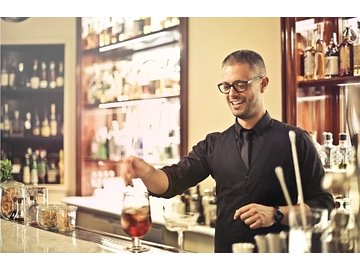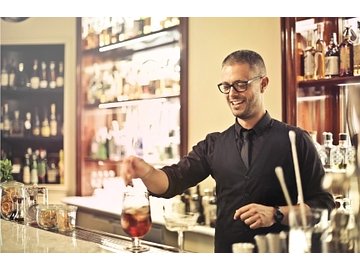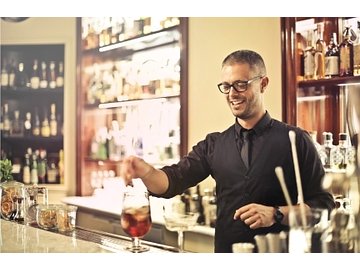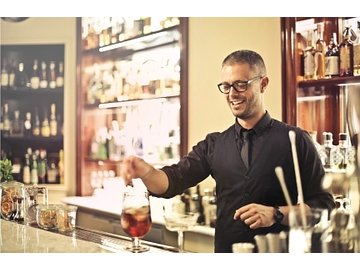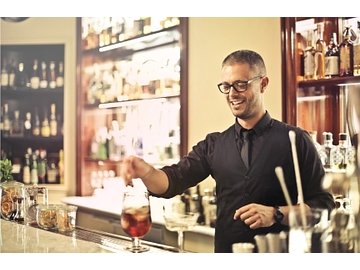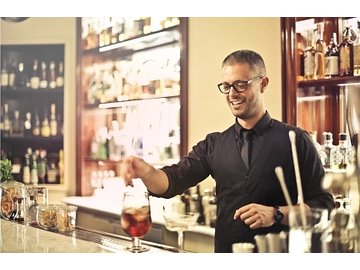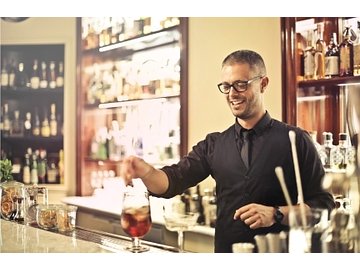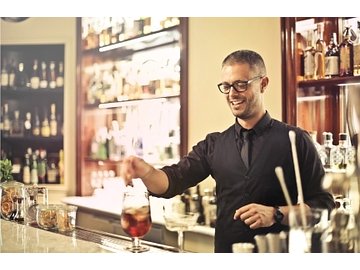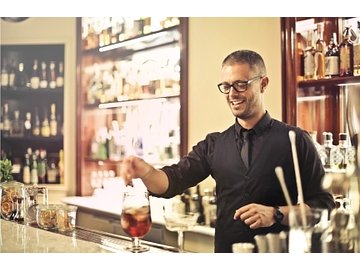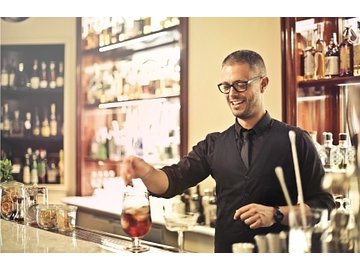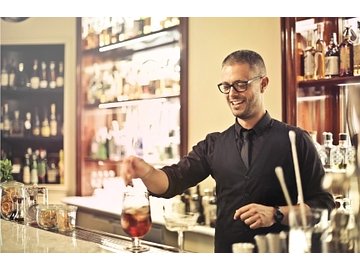Filter by
Sort
Sub-category
Training Bundles
- Artificial Intelligence
- California HR Essentials
- Cybersecurity Essentials
- Digital Transformation
- Diversity, Equity & Inclusion
- DOT/CDL
- Drug and Alcohol Compliance
- Financial Compliance
- First Aid
- Food Safety
- HIPAA Compliance
- HR Essentials
- Leadership
- Mental Health & Wellbeing
- OSHA / Construction Safety
- Personal Development
- Project Management
- Retail
- Workplace Harassment
- Workplace Safety
State
Language
Tags
Price
Duration
Audience
Online Food & Alcohol Alcohol Server Courses
Courses
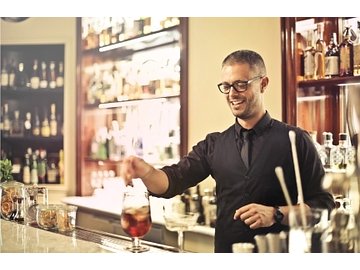
Food & Alcohol
Illinois BASSET Certificate Training
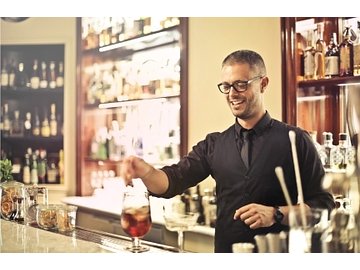
Food & Alcohol
West Virginia Liqour License Training
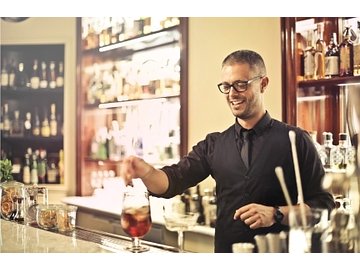
Food & Alcohol
South Carolina Liquor License Training
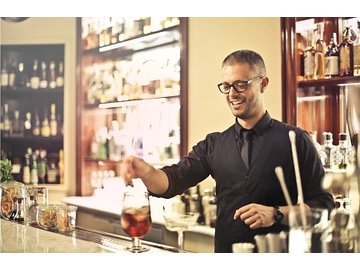
Food & Alcohol
Ohio Alcohol Server License Training
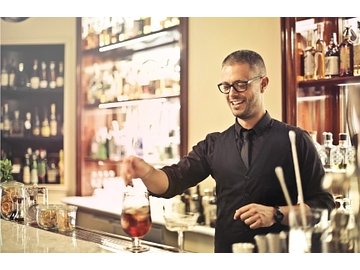
Food & Alcohol
Montana Alcohol Certification - Bartenders and Servers
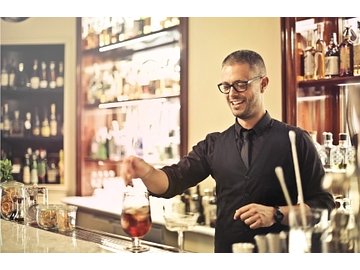
Food & Alcohol
Mississippi Server Liquor License Online
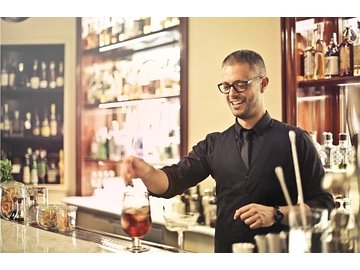
Food & Alcohol
Minnesota Alcohol Laws Bartender Training
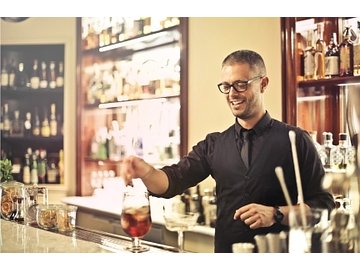
Food & Alcohol
Massachusetts Bartender License Training
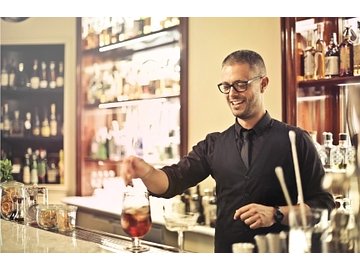
Food & Alcohol
Kentucky STAR Training - Bowling Green and Lexington-Fayette
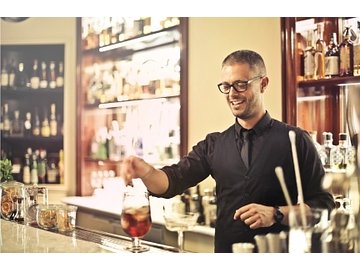
Food & Alcohol
Kansas Server Liquor License Online
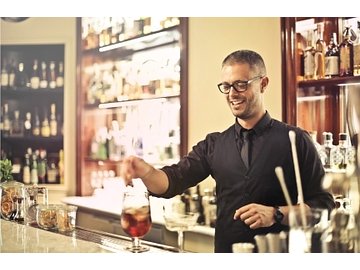
Food & Alcohol
Indiana Server Liquor License Online
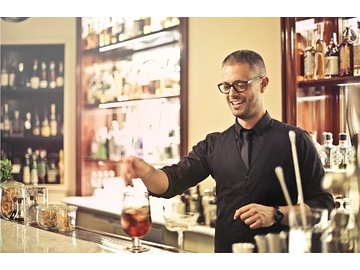
Food & Alcohol
Georgia Alcohol Certification Training
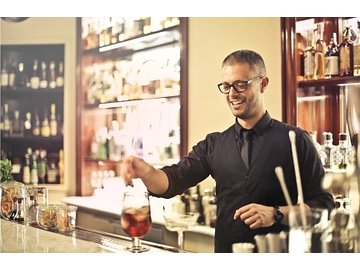
Food & Alcohol
Florida Server Liquor License Online - Spanish
About Alcohol Server Training
During my early days in hospitality, I thought the hardest part of bartending would be memorizing drink recipes or carrying three plates at once. That changed one Friday night when a guest at my table started slurring his words. His friends laughed it off, but I could see where things were heading. My stomach dropped — do I cut him off? Offer water? Call my manager? One wrong move and I could lose tips, upset the guest, or worse, put someone’s safety at risk.
That moment stuck with me. Serving alcohol isn’t just about pouring a drink into a glass. It’s about responsibility. And that’s where Alcohol Server Training makes all the difference. It takes the guesswork out of stressful situations and gives you the tools to handle them with confidence.
Why Alcohol Server Training Matters
Alcohol brings people together — birthdays, celebrations, sporting events, even a casual happy hour after work. But with that fun comes responsibility. A guest who drinks too much can put themselves and others in danger. For staff, the risks are both personal and professional.
Alcohol Server Training is designed to help workers recognize those risky moments and act before something goes wrong. It teaches servers and bartenders how to:
-
Spot the signs of intoxication.
-
Handle difficult conversations when refusing service.
-
Check IDs and catch fakes.
-
Understand state-specific rules and responsibilities.
Without training, a split-second decision can turn into an accident, a fine, or a lost job. With training, you walk into your shift knowing you’re equipped to make smart calls.
The Law and Industry Standards
Here’s the reality: every state has its own alcohol laws. In some places, you can’t even start your first shift without certification. In others, you have a short window of time to get trained.
Why so strict? Because the consequences of poor service can be devastating. If a bar overserves a guest and that guest causes an accident, the establishment — and sometimes the server — can be held responsible. Fines, suspended liquor licenses, lawsuits, even criminal charges in extreme cases.
That’s why businesses take Alcohol Server Training seriously. It’s not just paperwork. It’s a legal shield, protecting both the company and the individuals working there.
What Employers Need to Do
Hospitality managers carry a heavy load. They aren’t just running schedules and keeping customers happy. They’re also responsible for compliance. Here’s what employers are expected to provide:
-
Access to approved Alcohol Server Training programs.
-
Records of every employee’s certification.
-
Clear rules about serving limits, cut-offs, and ID checks.
-
A culture where staff feels supported when they make tough calls.
When employers treat training like a box to check, employees often feel unprepared. When they take it seriously, staff gain confidence, customers feel safer, and the business earns trust.
What Employees Need to Do
For servers and bartenders, the responsibility is personal. Once you’ve completed training, you’re expected to apply it every shift. That means:
-
Watching body language and speech for signs of intoxication.
-
Refusing service when necessary, even if it’s uncomfortable.
-
Being consistent with ID checks — whether someone looks 18 or 48.
-
Staying calm when a guest pushes back.
The truth is, refusing service is rarely fun. But knowing the law, having practiced responses, and feeling confident in your authority makes it easier. That’s one of the biggest benefits of Alcohol Server Training: it prepares you for the tough moments.
Real-Life Scenarios
Let me share two situations I’ve seen play out in different establishments:
Scenario One: A server without training keeps serving shots to a group celebrating a birthday. Everyone laughs, but one guest leaves, drives, and ends up in an accident. The bar is fined, the license is suspended, and the server is fired.
Scenario Two: A trained bartender notices a customer showing signs of intoxication. She offers food, slows down service, and eventually stops pouring alcohol. The customer grumbles, but accepts a cab ride home. The night ends safely, and the bar avoids disaster.
The difference is simple: training. It’s not about memorizing rules — it’s about knowing what to do in the moment.
Building Safer Habits
Training isn’t a one-and-done event. The best establishments weave responsible service into their daily operations. Here are a few ways they do it:
-
Running ID-check drills during pre-shift meetings.
-
Posting reminder cards in staff areas about signs of intoxication.
-
Encouraging servers to back each other up when refusing service.
-
Refreshing staff on laws whenever something changes locally.
When responsible service becomes part of the workplace culture, employees stop seeing it as “one more thing” and start seeing it as part of their professionalism.
Certification, Compliance, and Career Growth
At the end of training, you walk away with a certificate — usually printable, downloadable, or emailed instantly. Employers need those certificates on file for inspections or audits.
But the paper itself isn’t the biggest reward. The real value is what it represents:
-
For employees: certification makes you more employable. Many bars and restaurants won’t even consider applicants without it. It can also be the first step toward bartending or management positions.
-
For employers: it lowers liability, strengthens reputation, and keeps doors open without the fear of fines or suspensions.
For many, Alcohol Server Training isn’t just compliance. It’s an investment in career growth.
Wrapping It Together
Anyone can learn to pour a beer or mix a cocktail. What separates a professional server or bartender from the rest is the ability to serve responsibly. Alcohol Server Training bridges that gap.
It equips workers with practical skills, prepares businesses for inspections, and most importantly, keeps guests safe. For aspiring servers, it’s often the key to landing that first job. For seasoned bartenders, it’s the foundation of long-term career success.
Serving alcohol will always involve judgment calls. Training doesn’t remove that pressure — but it gives you the confidence to make the right call when it matters most.
Alcohol Server FAQs
Why is Alcohol Server Training important for businesses?
Alcohol Server Training is important because it protects both the business and its employees. Trained servers are less likely to overserve, which helps prevent accidents, avoids costly fines, and keeps liquor licenses secure. It also shows customers that the establishment takes safety and professionalism seriously, building trust and repeat business.
How often should Alcohol Server Training be updated?
Alcohol Server Training should be updated every two to three years in most states, depending on local laws. Even if the rules allow for longer gaps, many employers prefer more frequent updates to keep staff sharp, ensure compliance, and prepare for law changes before they take effect.
Are online Alcohol Server Training programs as effective as in-person classes?
Online Alcohol Server Training can be just as effective as in-person classes, and in many cases, it’s more convenient. The same material is covered, but online programs allow staff to learn at their own pace, often from a phone or tablet. Certificates are issued instantly, which is especially helpful for new hires who need certification before their first shift.
What happens if Alcohol Server Training is ignored or not applied?
If Alcohol Server Training is ignored, the consequences can be severe. Employees may lose their jobs or face legal trouble, while businesses risk lawsuits, fines, or even losing their liquor licenses. A single mistake behind the bar can undo years of hard work and damage the reputation of the business.
How can employers measure if Alcohol Server Training is effective?
Employers can measure Alcohol Server Training effectiveness by looking at results on the job. Fewer incidents, smoother ID checks, and confident handling of tough situations are strong signs it’s working. Guest feedback and inspection reports also help reveal whether staff are applying what they’ve learned consistently.

